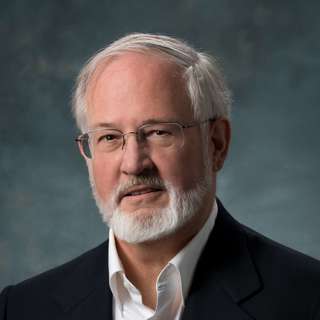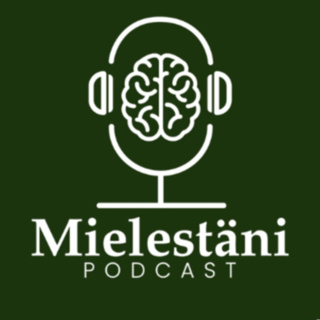
#180 – Hugo Mercier on why gullibility and misinformation are overrated
The World Economic Forum’s global risks survey of 1,400 experts, policymakers, and industry leaders ranked misinformation and disinformation as the number one global risk over the next two years — ranking it ahead of war, environmental problems, and other threats from AI.And the discussion around misinformation and disinformation has shifted to focus on how generative AI or a future super-persuasive AI might change the game and make it extremely hard to figure out what was going on in the world — or alternatively, extremely easy to mislead people into believing convenient lies.But this week’s guest, cognitive scientist Hugo Mercier, has a very different view on how people form beliefs and figure out who to trust — one in which misinformation really is barely a problem today, and is unlikely to be a problem anytime soon. As he explains in his book Not Born Yesterday, Hugo believes we seriously underrate the perceptiveness and judgement of ordinary people.Links to learn more, summary, and full transcript.In this interview, host Rob Wiblin and Hugo discuss:How our reasoning mechanisms evolved to facilitate beneficial communication, not blind gullibility.How Hugo makes sense of our apparent gullibility in many cases — like falling for financial scams, astrology, or bogus medical treatments, and voting for policies that aren’t actually beneficial for us.Rob and Hugo’s ideas about whether AI might make misinformation radically worse, and which mass persuasion approaches we should be most worried about.Why Hugo thinks our intuitions about who to trust are generally quite sound, even in today’s complex information environment.The distinction between intuitive beliefs that guide our actions versus reflective beliefs that don’t.Why fake news and conspiracy theories actually have less impact than most people assume.False beliefs that have persisted across cultures and generations — like bloodletting and vaccine hesitancy — and theories about why.And plenty more.Chapters:The view that humans are really gullible (00:04:26)The evolutionary argument against humans being gullible (00:07:46) Open vigilance (00:18:56)Intuitive and reflective beliefs (00:32:25)How people decide who to trust (00:41:15)Redefining beliefs (00:51:57)Bloodletting (01:00:38)Vaccine hesitancy and creationism (01:06:38)False beliefs without skin in the game (01:12:36)One consistent weakness in human judgement (01:22:57)Trying to explain harmful financial decisions (01:27:15)Astrology (01:40:40)Medical treatments that don’t work (01:45:47)Generative AI, LLMs, and persuasion (01:54:50)Ways AI could improve the information environment (02:29:59)Producer and editor: Keiran HarrisAudio Engineering Lead: Ben CordellTechnical editing: Simon Monsour and Milo McGuireTranscriptions: Katy Moore
21 Helmi 20242h 36min

#179 – Randy Nesse on why evolution left us so vulnerable to depression and anxiety
Mental health problems like depression and anxiety affect enormous numbers of people and severely interfere with their lives. By contrast, we don’t see similar levels of physical ill health in young people. At any point in time, something like 20% of young people are working through anxiety or depression that’s seriously interfering with their lives — but nowhere near 20% of people in their 20s have severe heart disease or cancer or a similar failure in a key organ of the body other than the brain.From an evolutionary perspective, that’s to be expected, right? If your heart or lungs or legs or skin stop working properly while you’re a teenager, you’re less likely to reproduce, and the genes that cause that malfunction get weeded out of the gene pool.So why is it that these evolutionary selective pressures seemingly fixed our bodies so that they work pretty smoothly for young people most of the time, but it feels like evolution fell asleep on the job when it comes to the brain? Why did evolution never get around to patching the most basic problems, like social anxiety, panic attacks, debilitating pessimism, or inappropriate mood swings? For that matter, why did evolution go out of its way to give us the capacity for low mood or chronic anxiety or extreme mood swings at all?Today’s guest, Randy Nesse — a leader in the field of evolutionary psychiatry — wrote the book Good Reasons for Bad Feelings, in which he sets out to try to resolve this paradox.Links to learn more, video, highlights, and full transcript.In the interview, host Rob Wiblin and Randy discuss the key points of the book, as well as:How the evolutionary psychiatry perspective can help people appreciate that their mental health problems are often the result of a useful and important system.How evolutionary pressures and dynamics lead to a wide range of different personalities, behaviours, strategies, and tradeoffs.The missing intellectual foundations of psychiatry, and how an evolutionary lens could revolutionise the field.How working as both an academic and a practicing psychiatrist shaped Randy’s understanding of treating mental health problems.The “smoke detector principle” of why we experience so many false alarms along with true threats.The origins of morality and capacity for genuine love, and why Randy thinks it’s a mistake to try to explain these from a selfish gene perspective.Evolutionary theories on why we age and die.And much more.Producer and editor: Keiran HarrisAudio Engineering Lead: Ben CordellTechnical editing: Dominic ArmstrongTranscriptions: Katy Moore
12 Helmi 20242h 56min

#178 – Emily Oster on what the evidence actually says about pregnancy and parenting
"I think at various times — before you have the kid, after you have the kid — it's useful to sit down and think about: What do I want the shape of this to look like? What time do I want to be spending? Which hours? How do I want the weekends to look? The things that are going to shape the way your day-to-day goes, and the time you spend with your kids, and what you're doing in that time with your kids, and all of those things: you have an opportunity to deliberately plan them. And you can then feel like, 'I've thought about this, and this is a life that I want. This is a life that we're trying to craft for our family, for our kids.' And that is distinct from thinking you're doing a good job in every moment — which you can't achieve. But you can achieve, 'I'm doing this the way that I think works for my family.'" — Emily OsterIn today’s episode, host Luisa Rodriguez speaks to Emily Oster — economist at Brown University, host of the ParentData podcast, and the author of three hugely popular books that provide evidence-based insights into pregnancy and early childhood.Links to learn more, summary, and full transcript.They cover:Common pregnancy myths and advice that Emily disagrees with — and why you should probably get a doula.Whether it’s fine to continue with antidepressants and coffee during pregnancy.What the data says — and doesn’t say — about outcomes from parenting decisions around breastfeeding, sleep training, childcare, and more.Which factors really matter for kids to thrive — and why that means parents shouldn’t sweat the small stuff.How to reduce parental guilt and anxiety with facts, and reject judgemental “Mommy Wars” attitudes when making decisions that are best for your family.The effects of having kids on career ambitions, pay, and productivity — and how the effects are different for men and women.Practical advice around managing the tradeoffs between career and family.What to consider when deciding whether and when to have kids.Relationship challenges after having kids, and the protective factors that help.And plenty more.Producer and editor: Keiran HarrisAudio Engineering Lead: Ben CordellTechnical editing: Simon Monsour and Milo McGuireAdditional content editing: Katy Moore and Luisa RodriguezTranscriptions: Katy Moore
1 Helmi 20242h 22min

#177 – Nathan Labenz on recent AI breakthroughs and navigating the growing rift between AI safety and accelerationist camps
Back in December we spoke with Nathan Labenz — AI entrepreneur and host of The Cognitive Revolution Podcast — about the speed of progress towards AGI and OpenAI's leadership drama, drawing on Nathan's alarming experience red-teaming an early version of GPT-4 and resulting conversations with OpenAI staff and board members.Links to learn more, video, highlights, and full transcript.Today we go deeper, diving into:What AI now actually can and can’t do, across language and visual models, medicine, scientific research, self-driving cars, robotics, weapons — and what the next big breakthrough might be.Why most people, including most listeners, probably don’t know and can’t keep up with the new capabilities and wild results coming out across so many AI applications — and what we should do about that.How we need to learn to talk about AI more productively, particularly addressing the growing chasm between those concerned about AI risks and those who want to see progress accelerate, which may be counterproductive for everyone.Where Nathan agrees with and departs from the views of ‘AI scaling accelerationists.’The chances that anti-regulation rhetoric from some AI entrepreneurs backfires.How governments could (and already do) abuse AI tools like facial recognition, and how militarisation of AI is progressing.Preparing for coming societal impacts and potential disruption from AI.Practical ways that curious listeners can try to stay abreast of everything that’s going on.And plenty more.Producer and editor: Keiran HarrisAudio Engineering Lead: Ben CordellTechnical editing: Simon Monsour and Milo McGuireTranscriptions: Katy Moore
24 Tammi 20242h 47min

#90 Classic episode – Ajeya Cotra on worldview diversification and how big the future could be
You wake up in a mysterious box, and hear the booming voice of God: “I just flipped a coin. If it came up heads, I made ten boxes, labeled 1 through 10 — each of which has a human in it. If it came up tails, I made ten billion boxes, labeled 1 through 10 billion — also with one human in each box. To get into heaven, you have to answer this correctly: Which way did the coin land?”You think briefly, and decide you should bet your eternal soul on tails. The fact that you woke up at all seems like pretty good evidence that you’re in the big world — if the coin landed tails, way more people should be having an experience just like yours.But then you get up, walk outside, and look at the number on your box.‘3’. Huh. Now you don’t know what to believe.If God made 10 billion boxes, surely it’s much more likely that you would have seen a number like 7,346,678,928?In today’s interview, Ajeya Cotra — a senior research analyst at Open Philanthropy — explains why this thought experiment from the niche of philosophy known as ‘anthropic reasoning’ could be relevant for figuring out where we should direct our charitable giving.Rebroadcast: this episode was originally released in January 2021.Links to learn more, summary, and full transcript.Some thinkers both inside and outside Open Philanthropy believe that philanthropic giving should be guided by ‘longtermism’ — the idea that we can do the most good if we focus primarily on the impact our actions will have on the long-term future.Ajeya thinks that for that notion to make sense, there needs to be a good chance we can settle other planets and solar systems and build a society that’s both very large relative to what’s possible on Earth and, by virtue of being so spread out, able to protect itself from extinction for a very long time.But imagine that humanity has two possible futures ahead of it: Either we’re going to have a huge future like that, in which trillions of people ultimately exist, or we’re going to wipe ourselves out quite soon, thereby ensuring that only around 100 billion people ever get to live.If there are eventually going to be 1,000 trillion humans, what should we think of the fact that we seemingly find ourselves so early in history? Being among the first 100 billion humans, as we are, is equivalent to walking outside and seeing a three on your box. Suspicious! If the future will have many trillions of people, the odds of us appearing so strangely early are very low indeed.If we accept the analogy, maybe we can be confident that humanity is at a high risk of extinction based on this so-called ‘doomsday argument‘ alone.If that’s true, maybe we should put more of our resources into avoiding apparent extinction threats like nuclear war and pandemics. But on the other hand, maybe the argument shows we’re incredibly unlikely to achieve a long and stable future no matter what we do, and we should forget the long term and just focus on the here and now instead.There are many critics of this theoretical ‘doomsday argument’, and it may be the case that it logically doesn’t work. This is why Ajeya spent time investigating it, with the goal of ultimately making better philanthropic grants.In this conversation, Ajeya and Rob discuss both the doomsday argument and the challenge Open Phil faces striking a balance between taking big ideas seriously, and not going all in on philosophical arguments that may turn out to be barking up the wrong tree entirely.They also discuss:Which worldviews Open Phil finds most plausible, and how it balances themWhich worldviews Ajeya doesn’t embrace but almost doesHow hard it is to get to other solar systemsThe famous ‘simulation argument’When transformative AI might actually arriveThe biggest challenges involved in working on big research reportsWhat it’s like working at Open PhilAnd much moreProducer: Keiran HarrisAudio mastering: Ben CordellTranscriptions: Sofia Davis-Fogel
12 Tammi 20242h 59min

#112 Classic episode – Carl Shulman on the common-sense case for existential risk work and its practical implications
Preventing the apocalypse may sound like an idiosyncratic activity, and it sometimes is justified on exotic grounds, such as the potential for humanity to become a galaxy-spanning civilisation.But the policy of US government agencies is already to spend up to $4 million to save the life of a citizen, making the death of all Americans a $1,300,000,000,000,000 disaster.According to Carl Shulman, research associate at Oxford University’s Future of Humanity Institute, that means you don’t need any fancy philosophical arguments about the value or size of the future to justify working to reduce existential risk — it passes a mundane cost-benefit analysis whether or not you place any value on the long-term future.Rebroadcast: this episode was originally released in October 2021.Links to learn more, summary, and full transcript.The key reason to make it a top priority is factual, not philosophical. That is, the risk of a disaster that kills billions of people alive today is alarmingly high, and it can be reduced at a reasonable cost. A back-of-the-envelope version of the argument runs:The US government is willing to pay up to $4 million (depending on the agency) to save the life of an American.So saving all US citizens at any given point in time would be worth $1,300 trillion.If you believe that the risk of human extinction over the next century is something like one in six (as Toby Ord suggests is a reasonable figure in his book The Precipice), then it would be worth the US government spending up to $2.2 trillion to reduce that risk by just 1%, in terms of American lives saved alone.Carl thinks it would cost a lot less than that to achieve a 1% risk reduction if the money were spent intelligently. So it easily passes a government cost-benefit test, with a very big benefit-to-cost ratio — likely over 1000:1 today.This argument helped NASA get funding to scan the sky for any asteroids that might be on a collision course with Earth, and it was directly promoted by famous economists like Richard Posner, Larry Summers, and Cass Sunstein.If the case is clear enough, why hasn’t it already motivated a lot more spending or regulations to limit existential risks — enough to drive down what any additional efforts would achieve?Carl thinks that one key barrier is that infrequent disasters are rarely politically salient. Research indicates that extra money is spent on flood defences in the years immediately following a massive flood — but as memories fade, that spending quickly dries up. Of course the annual probability of a disaster was the same the whole time; all that changed is what voters had on their minds.Carl suspects another reason is that it’s difficult for the average voter to estimate and understand how large these respective risks are, and what responses would be appropriate rather than self-serving. If the public doesn’t know what good performance looks like, politicians can’t be given incentives to do the right thing.It’s reasonable to assume that if we found out a giant asteroid were going to crash into the Earth one year from now, most of our resources would be quickly diverted into figuring out how to avert catastrophe.But even in the case of COVID-19, an event that massively disrupted the lives of everyone on Earth, we’ve still seen a substantial lack of investment in vaccine manufacturing capacity and other ways of controlling the spread of the virus, relative to what economists recommended.Carl expects that all the reasons we didn’t adequately prepare for or respond to COVID-19 — with excess mortality over 15 million and costs well over $10 trillion — bite even harder when it comes to threats we’ve never faced before, such as engineered pandemics, risks from advanced artificial intelligence, and so on.Today’s episode is in part our way of trying to improve this situation. In today’s wide-ranging conversation, Carl and Rob also cover:A few reasons Carl isn’t excited by ‘strong longtermism’How x-risk reduction compares to GiveWell recommendationsSolutions for asteroids, comets, supervolcanoes, nuclear war, pandemics, and climate changeThe history of bioweaponsWhether gain-of-function research is justifiableSuccesses and failures around COVID-19The history of existential riskAnd much moreProducer: Keiran HarrisAudio mastering: Ben CordellTranscriptions: Katy Moore
8 Tammi 20243h 50min

#111 Classic episode – Mushtaq Khan on using institutional economics to predict effective government reforms
If you’re living in the Niger Delta in Nigeria, your best bet at a high-paying career is probably ‘artisanal refining’ — or, in plain language, stealing oil from pipelines.The resulting oil spills damage the environment and cause severe health problems, but the Nigerian government has continually failed in their attempts to stop this theft.They send in the army, and the army gets corrupted. They send in enforcement agencies, and the enforcement agencies get corrupted. What’s happening here?According to Mushtaq Khan, economics professor at SOAS University of London, this is a classic example of ‘networked corruption’. Everyone in the community is benefiting from the criminal enterprise — so much so that the locals would prefer civil war to following the law. It pays vastly better than other local jobs, hotels and restaurants have formed around it, and houses are even powered by the electricity generated from the oil.Rebroadcast: this episode was originally released in September 2021.Links to learn more, summary, and full transcript.In today’s episode, Mushtaq elaborates on the models he uses to understand these problems and make predictions he can test in the real world.Some of the most important factors shaping the fate of nations are their structures of power: who is powerful, how they are organized, which interest groups can pull in favours with the government, and the constant push and pull between the country’s rulers and its ruled. While traditional economic theory has relatively little to say about these topics, institutional economists like Mushtaq have a lot to say, and participate in lively debates about which of their competing ideas best explain the world around us.The issues at stake are nothing less than why some countries are rich and others are poor, why some countries are mostly law abiding while others are not, and why some government programmes improve public welfare while others just enrich the well connected.Mushtaq’s specialties are anti-corruption and industrial policy, where he believes mainstream theory and practice are largely misguided. To root out fraud, aid agencies try to impose institutions and laws that work in countries like the U.K. today. Everyone nods their heads and appears to go along, but years later they find nothing has changed, or worse — the new anti-corruption laws are mostly just used to persecute anyone who challenges the country’s rulers.As Mushtaq explains, to people who specialise in understanding why corruption is ubiquitous in some countries but not others, this is entirely predictable. Western agencies imagine a situation where most people are law abiding, but a handful of selfish fat cats are engaging in large-scale graft. In fact in the countries they’re trying to change everyone is breaking some rule or other, or participating in so-called ‘corruption’, because it’s the only way to get things done and always has been.Mushtaq’s rule of thumb is that when the locals most concerned with a specific issue are invested in preserving a status quo they’re participating in, they almost always win out.To actually reduce corruption, countries like his native Bangladesh have to follow the same gradual path the U.K. once did: find organizations that benefit from rule-abiding behaviour and are selfishly motivated to promote it, and help them police their peers.Trying to impose a new way of doing things from the top down wasn’t how Europe modernised, and it won’t work elsewhere either.In cases like oil theft in Nigeria, where no one wants to follow the rules, Mushtaq says corruption may be impossible to solve directly. Instead you have to play a long game, bringing in other employment opportunities, improving health services, and deploying alternative forms of energy — in the hope that one day this will give people a viable alternative to corruption.In this extensive interview Rob and Mushtaq cover this and much more, including:How does one test theories like this?Why are companies in some poor countries so much less productive than their peers in rich countries?Have rich countries just legalized the corruption in their societies?What are the big live debates in institutional economics?Should poor countries protect their industries from foreign competition?Where has industrial policy worked, and why?How can listeners use these theories to predict which policies will work in their own countries?Producer: Keiran HarrisAudio mastering: Ben CordellTranscriptions: Sofia Davis-Fogel
4 Tammi 20243h 22min

2023 Mega-highlights Extravaganza
Happy new year! We've got a different kind of holiday release for you today. Rather than a 'classic episode,' we've put together one of our favourite highlights from each episode of the show that came out in 2023. That's 32 of our favourite ideas packed into one episode that's so bursting with substance it might be more than the human mind can safely handle.There's something for everyone here:Ezra Klein on punctuated equilibriumTom Davidson on why AI takeoff might be shockingly fastJohannes Ackva on political action versus lifestyle changesHannah Ritchie on how buying environmentally friendly technology helps low-income countries Bryan Caplan on rational irrationality on the part of votersJan Leike on whether the release of ChatGPT increased or reduced AI extinction risksAthena Aktipis on why elephants get deadly cancers less often than humansAnders Sandberg on the lifespan of civilisationsNita Farahany on hacking neural interfaces...plus another 23 such gems. And they're in an order that our audio engineer Simon Monsour described as having an "eight-dimensional-tetris-like rationale."I don't know what the hell that means either, but I'm curious to find out.And remember: if you like these highlights, note that we release 20-minute highlights reels for every new episode over on our sister feed, which is called 80k After Hours. So even if you're struggling to make time to listen to every single one, you can always get some of the best bits of our episodes.We hope for all the best things to happen for you in 2024, and we'll be back with a traditional classic episode soon.This Mega-highlights Extravaganza was brought to you by Ben Cordell, Simon Monsour, Milo McGuire, and Dominic Armstrong
31 Joulu 20231h 53min






















